From “the Old Stories” to the New
It all starts with story. The opening moments of Wicoun introduce teen siblings Khoskalaka (Kenny Ramos) and Áya (9A) as they struggle to finish high school while simultaneously raising a houseful of rambunctious siblings and cousins on the Rose Bud Reservation. The affliction of addiction apparently prevents the adults in the family from properly caring for the children. To entertain and educate the young ones in their charge, the studious Khoskalaka writes an original comic book in which a brain-eating toxin called “meth-icine” creates a new breed of zombies who terrorize the countryside. Rather than eating brains, these unique zombies persuade their victims to try meth-icine, which of course creates more zombies. As a force of good in the comic book, Khoskalaka creates a “slow talking” Elder Superhero (Rosetta Badhand-Walker) who fends off a zombie invasion by boring the “twitchy” attackers into submission and/or by offering them home baked cookies. Heartbreaking, yes, but also hilarious.
Soon thereafter, Áya, who presents as female but lives in what FastHorse describes as “a true two spirit place often called non-binary,” finds themselves in need of a real Lakota superhero. As Áya walks alone on an isolated road, three nefarious characters appear. Up to no good, they want to visit one of the children protected in Áya and Khoskalak’s home. Described in FastHorse’s colorful diction as “rez necks,” these menacing visitors consist of two of Native characters and one “white guy.” Distracted by Áya’s brave diversion, the white guy turns his aggression toward Áya, threatening sexual assault. Perhaps inspired by Khoskalaka’s comic book, Áya accidently and surprisingly summons Woohitike (Victoria Picotte-SunBear). Roughly translated from Lakota as “Bravery,” Woohitike appears from the dimensionless sacred space costumed in traditional Lakota dress but with Marvel-esque design touches, including a Fantastic Four-style embroidered belt buckle centering her deerskin robe. Using her super strength, Woohitike quickly subdues the rez necks and then immediately devotes herself to helping Áya discover their true purpose in life.
To transition into a Lakota superhero strong enough to protect their family, Áya must first fully accept their own gender identity.
More Lakota superheroes soon join the quest. First comes the shapeshifter Wówačhiŋtȟanka (Christopher Alexander Piña), which roughly translates from Lakota as “Perseverance.” With two superheroes now in tow, the teens embark on a road trip across the state to Rapid City to seek wisdom from a comic store owner named Marcus (Brandon J. Sazue Sr.). When they reach the foothills of Paha Sapa, a superfast superhero named Wówačhaŋtognake (Gina Project Celebrity Mallory) joins the group. Wóohitike means “Generosity” in Lakota.
After several complications, Áya eventually discovers that the true power to protect their family resides in embracing “the old stories.” As discussed earlier in the play, the old stories consist of narrative from the elders that everyone used to know, but that have sadly been forgotten by many. To transition into a Lakota superhero strong enough to protect their family, Áya must first fully accept their own gender identity. Khoskalaka coaches, “It’s the old way. Be you. All of you. No more fighting with who you are.” FastHorse’s stage directions effectively describe the transformation witnessed onstage: “Áya makes a grand dramatic gesture to shed the female expression of themself and transitions before our eyes to a trans man, with a little flair that holds their female power too.” In this majestic and magical flash, Áya transforms into Ahí, and a fourth mighty Lakota superhero is born.
FastHorse intersperses her epic story of becoming with a series of poetic interludes that poignantly express touchstones of the contemporary Indigenous identity. Presumably taken from her fieldwork interviews, these statements offer multiple responses, both in English and Lakota, to the following prompts:
“I feel powerful when…”
“Things I want to change: …”
“My superpower is…”
Delivered as a chorus of voices by the acting ensemble, the dozens of responses include empowering statements such as “I feel powerful when my hair is in a braid,” “things I want to change: colorism,” and “my superpower is being a caretaker.”


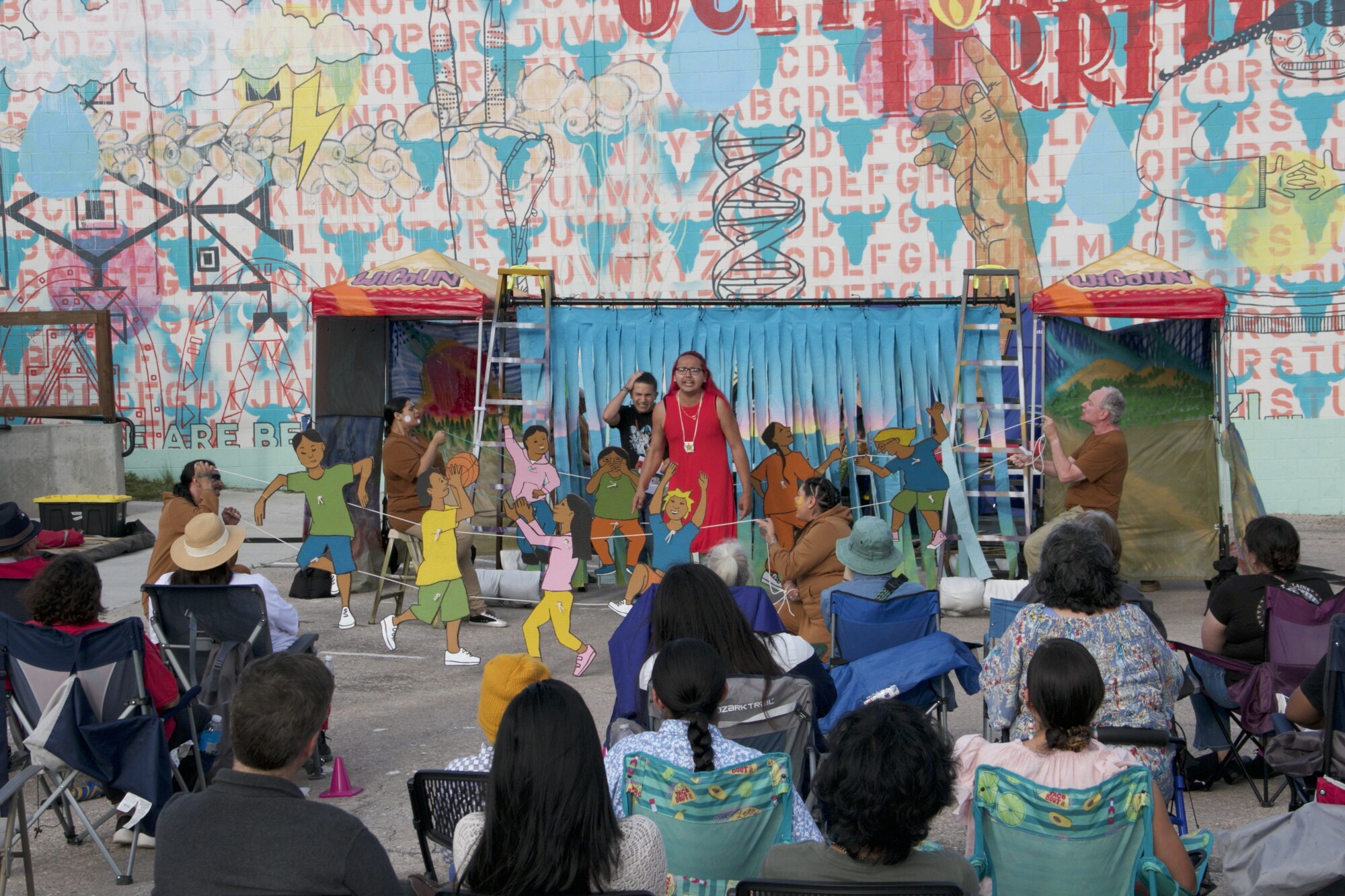
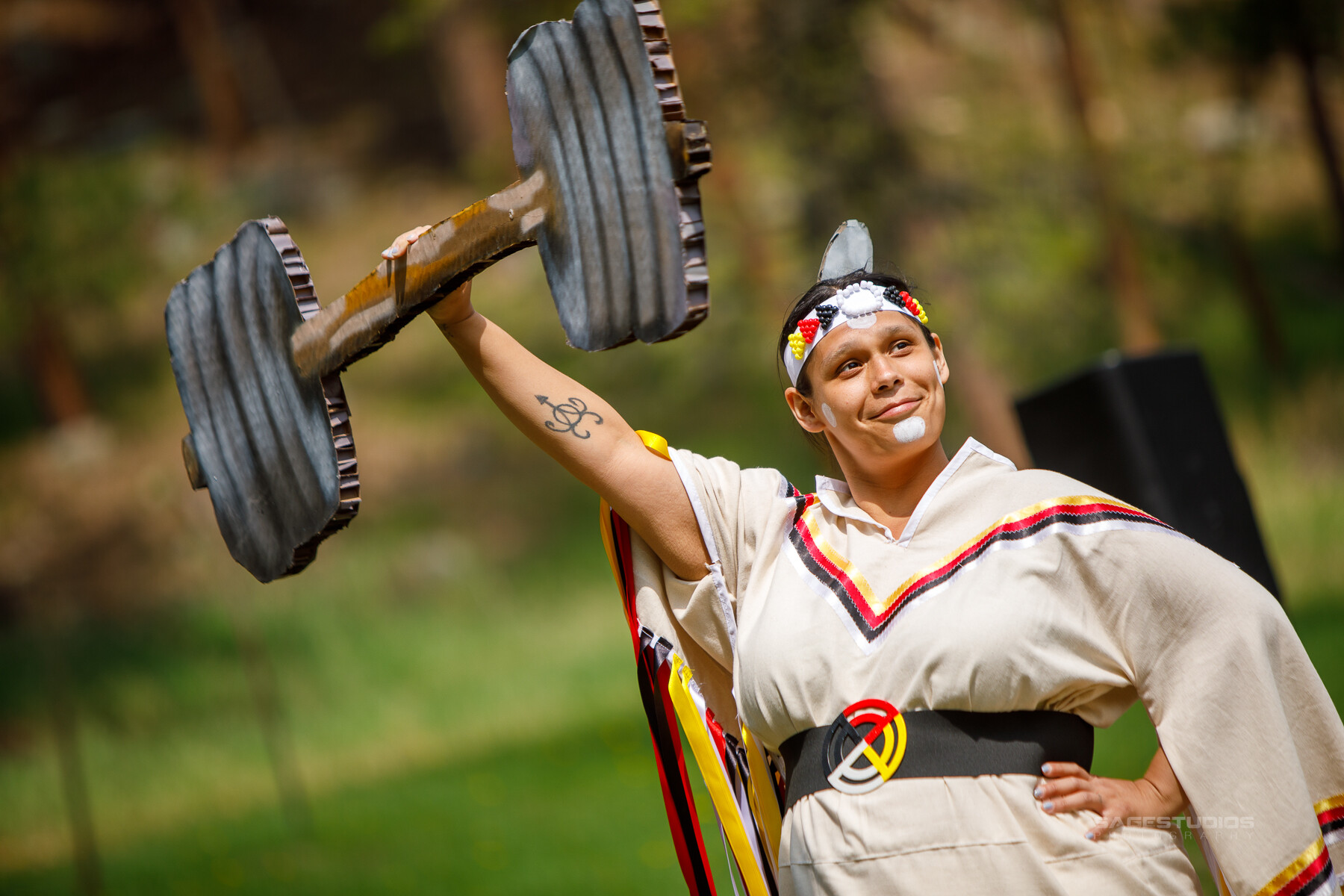
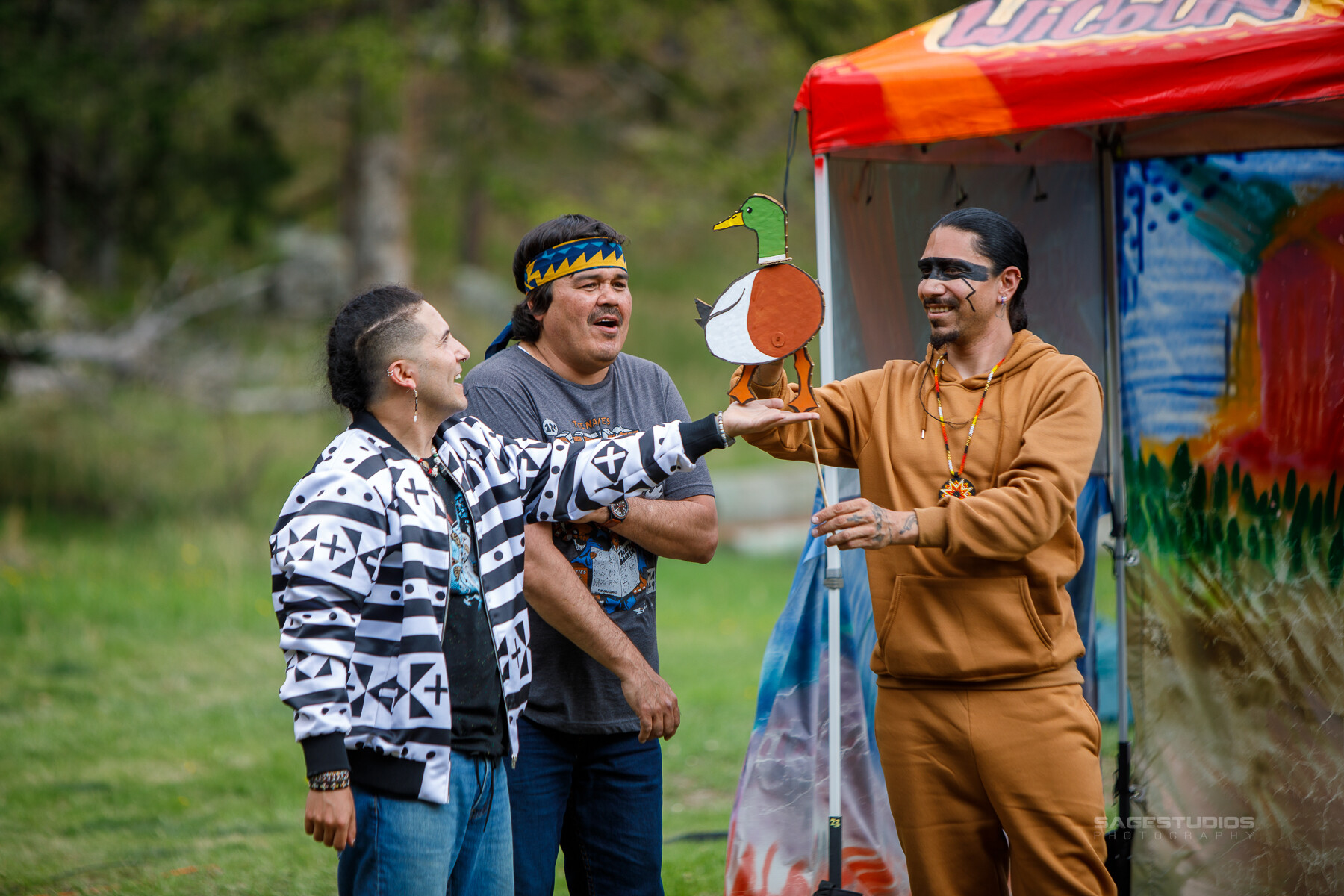
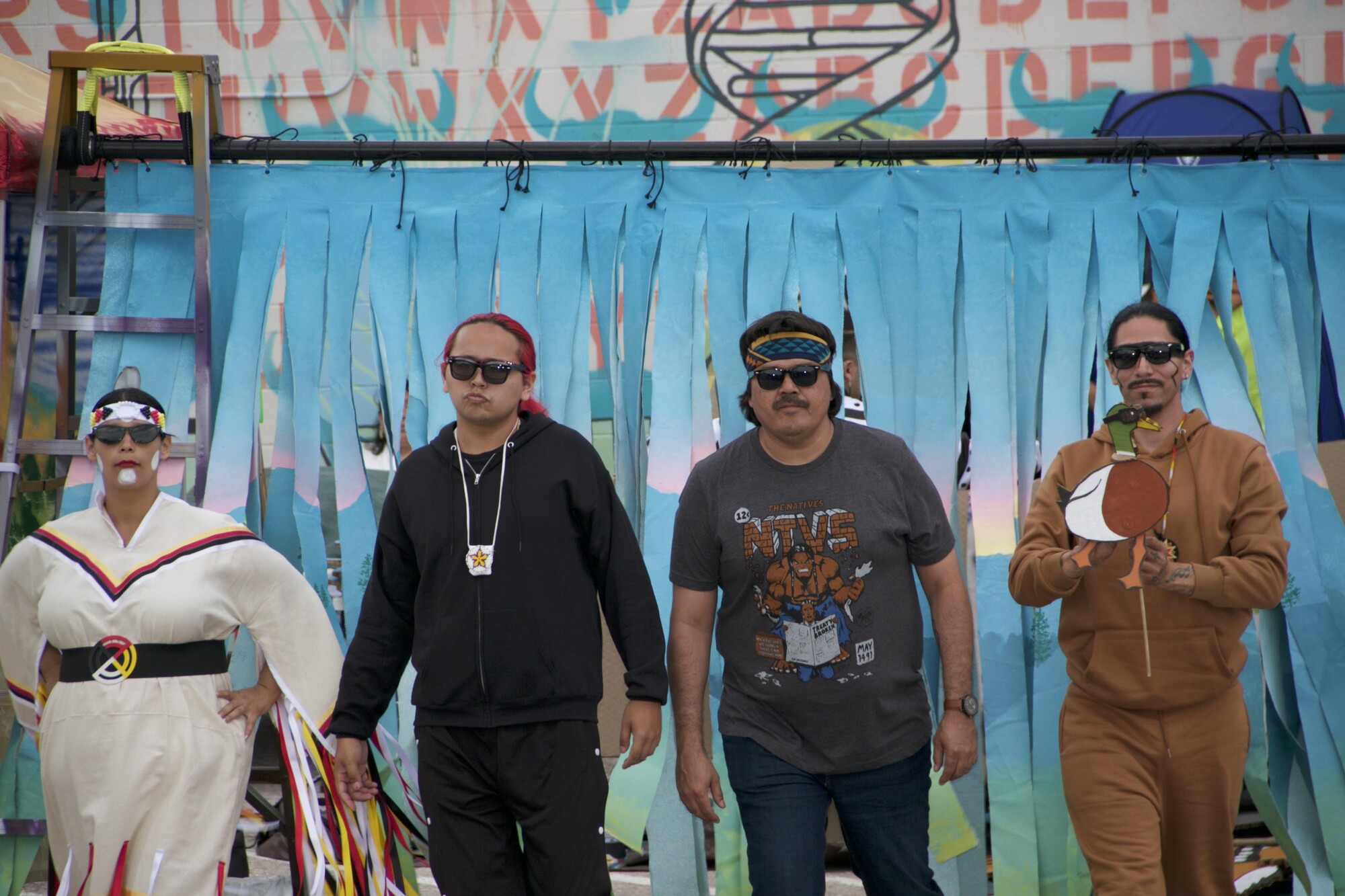
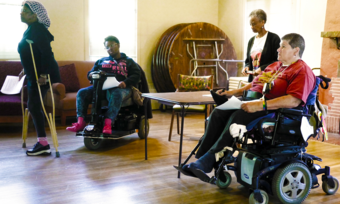

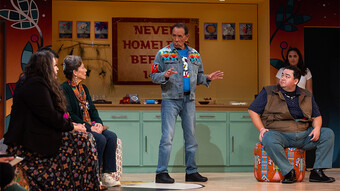

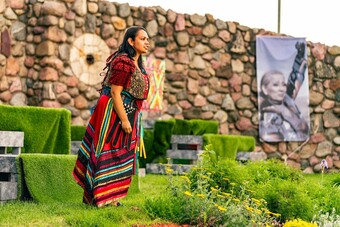
Comments
The article is just the start of the conversation—we want to know what you think about this subject, too! HowlRound is a space for knowledge-sharing, and we welcome spirited, thoughtful, and on-topic dialogue. Find our full comments policy here